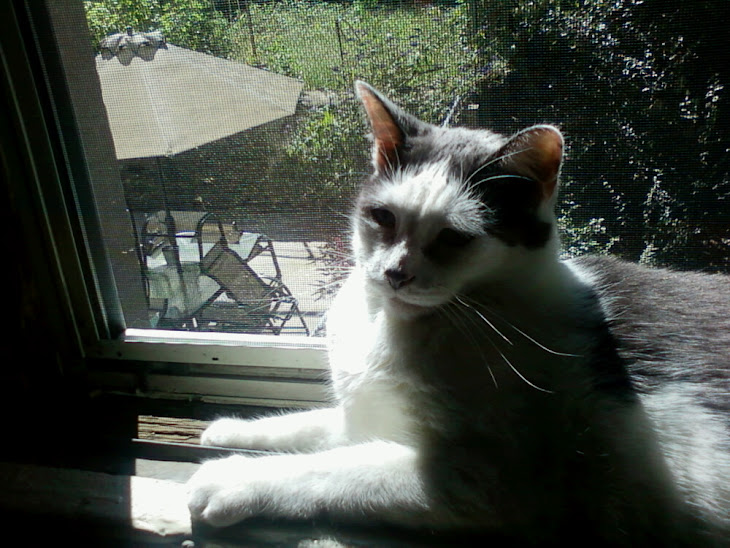And so we come again to another Anglocat Wrap-That-Year-Up post.
How to do it? In the past, I've done link-heavy roundups which were as exhaustive as they were exhausting. But this year, I really don't feel like it. How about a thematic approach?
1. Novelist:
Who ever would have me pegged for a novelist? And yet, Phineas at Bay is selling--slowly, but steadily, and with more opportunities coming in 2015. And the reviews--well, dig this:
In writing “Phineas at Bay”, John Wirenius has done the Trollope-loving world a great service. Phineas Finn was my first Trollope novel, at age 19 or 20, and ever since I think of him as the most charming character in English fiction. Now we have the chance to renew the acquaintance with Phineas later in life, and all of his world, in a novel Trollope himself would have thoroughly enjoyed: meaty, filled with humor, affection, drama, and above all, character – Trollope’s greatest genius and gift to the reading world. Read it at once, and, like all Trollope, again and again.I mean, what more could I ask?
Randolph Williams, President, the American Trollope Society
I'll tell you a secret; when I was in college, I dreamed of writing fiction. Tried my hand at it, too--I wrote a not-bad story called "In Extremis" based on the queasy experience of seeing my beloved grandfather develop memory problems, and a pair of others, too--and dried up. I was too facile, had nothing really to say. And for nearly 30 years, all my writing was scholarly. Mostly constitutional law, some legal history and, more recently, law and religion. But to think that that long-held, and long-despaired of, dream could be made real? I never saw it coming.
2. Scholarly Writing
In 2014, I managed to break into the big leagues of American Anglican scholarship: The Anglican Theological Review published my article, Swallowing the Camel: Biblical Fidelity, Same-Sex Marriage, and the Love of Money in its Summer 2014 issue. The abstract:
As the Episcopal Church begins local discernment on the question of whether to bless same-sex relationships, evaluation of the theological strength of the arguments for and against is ongoing. I examine the case against same-sex blessings and marriage made by the Traditionalist component of a task force appointed by the House of Bishops in their report. That case’s weakness, in terms of the asserted scriptural authority and basis in philosophic reason set forth by the Traditionalists themselves, is contrasted with the much stronger case on both grounds in favor of the biblical prohibition of usury, given by the Traditionalist report as an example of a scriptural command that was appropriately discarded by the church. The Traditionalists demonstrate a much greater willingness to put aside scripture, reason, and tradition in the case of usury, which is endemic in the culture at large, while holding fast to the prohibition against same-sex marriage, which is much less strongly rooted in each category. This in turn suggests that defenders of this prohibition may be unwittingly defending obedience to scripture when it imposes a lesser challenge to the culture in which defenders are invested, and imposes costs which they only feel in the abstract.
3. The Diaconate
Only comes third because it's an ongoing journey--a continuing story--and not a new one. This is the third and final training, and, God willing, on May 16, 2015, I will be ordained a deacon in the Episcopal Church. From Fall 2014 through that time, I am in my field placement at St. John's in the Village, which has received me kindly and with warmth, and has shown me a whole new way of doing liturgy.
4. Politics
I broke up with them. Life's too short, and there are things I'd rather be doing. Don't get me wrong, I stay informed, and on issues where I think I can do more than repeat already stated points of view, I pipe up. But I am striving mightily to shed the obsession. Wish me luck!
5. Sorrow and Joy
We lost a kitty this year, the redoubtable Elvis, our "Comfort Kitty." We miss him to this day.
Our remaining kitties give us much joy, and we are grateful for the animals who share our lives.
All of these and more have made up my year--I am purposefully focusing on the ones I've written up on the blog, but suffice it to say that 2014 has been a year of highs and lows, not all of which are suitable for the blog. A year of transition, too--but that's enough about that for now.
All the best for 2015, and thank you, one and all, for coming on the prowl this year. See you on the other side!




